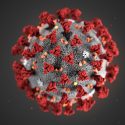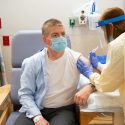COVID-19 stories and experts: Vaccine distribution, well-being, back to the workplace
The following UW–Madison stories and experts are available on current topics surrounding the COVID-19 pandemic. See more stories here.
Deployment of COVID-19 vaccines
As multiple pharmaceutical companies announce initial positive results from vaccine trials and Pfizer moves forward in the U.S., people all over the world are asking what comes next. In this UW Now recording, three UW–Madison experts answer questions about the development and distribution of COVID-19 vaccines.
Alta Charo is a professor law and bioethics and is serving on the National Academies of Sciences, Engineering, and Medicine committee that has developed a framework to advise the CDC and other agencies on the equitable allocation of COVID-19 vaccines. Contact: alta.charo@wisc.edu
Jonathan Temte is a professor of family medicine and an expert on epidemiology and immunization policy. Contact: ekumlien@uwhealth.org
James Conway is an expert on international immunization programs and global health. He’s an associate director at the Global Health Institute.
Contact: ekumlien@uwhealth.org
Hospital bed shortages
Laura Albert is a professor of industrial and systems engineering. She’s available for interviews about the cascading effects of hospital bed shortages. Albert says, “A shortage of hospital beds introduces strains on hospital and healthcare systems. Doctors, nurses, and hospital staff have extra tasks to free up beds, treat patients in less-than-ideal spaces, and transfer patients. For example, ambulances have to travel to more distant hospitals where there are beds available, which means paramedics and emergency technicians are busier than ever.”
Contact: laura@engr.wisc.edu
VIDEO: Working women adversely affected by pandemic
Pam Kreeger, an associate professor of biomedical engineering, and her colleagues recently published “Ten simple rules for women principal investigators during a pandemic,” citing the additional home and child care burdens female academics have taken on due to COVID-19. In this week’s Badger Talks, Kreeger shares suggestions to help women juggling duties at home with responsibilities in the workplace. Contact: kreeger@wisc.edu
Tools for achieving the ‘how’ of well-being in daily life
Organizations and communities are looking for practical tools to support mental health amid this growing crisis, which is taking place alongside ongoing social and racial unrest. In a recently published paper in the Proceedings of the National Academy of Sciences, researchers at the University of Wisconsin–Madison’s Center for Healthy Minds introduce a new framework for emotional well-being that focuses on specific skills that can be learned.
The framework is based on scientific evidence that suggests well-being can be cultivated through practice in daily life.
The framework focuses on four pillars that have been studied in the lab and have been shown to improve with training: awareness, or attentiveness to one’s environment and internal cues such as bodily sensations, thoughts and feelings; connection, or appreciation, kindness and compassion; insight, which refers to fostering curiosity and self-knowledge; and purpose, understanding your values and motivations. Read more here.
Contact: Contact: Cortland Dahl, cortland.dahl@wisc.edu; Christy Wilson-Mendenhall, cwilson37@wisc.edu; Richard Davidson, rjdavids@wisc.edu
Will we go back to the office?
Is it worth going back to the office? Jirs Meuris, a professor in UW–Madison’s School of Business, breaks down the advantages and disadvantages of working from home post-pandemic.
Contact: Jirs Meuris, meuris@wisc.edu
Tags: covid-19, media tips



